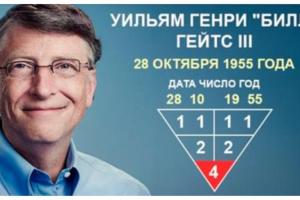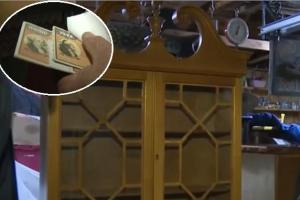For many millennia, the fate of the states and their peoples is very often decided not on the battlefield, but in the course of diplomatic negotiations. That is why today no country can do without the Ministry of Foreign Affairs. Moreover, experience shows that the successful work of this department is often associated with personal qualities, as well as with the professionalism and organizational abilities of its leader. To make sure of what has been said, it is worthwhile to find out who held this high post earlier, and which foreign ministers of Russia have special merits to our country.
Ambassadorial order
When a permanent diplomatic service appeared in Russia, it is not known for certain. However, the oldest surviving document - the decree on the appointment of Ivan Viskovaty as clerk of the embassy order - refers to 1549. Apparently, this official zealously got down to business, because after he took this position, papers regarding diplomatic activity in the first years of Ivan the Terrible's reign were put in full order, and he soon became the keeper of the state press.
The viscous man led the embassy order for 21 years, after which he was suspected of treason and executed. The disgrace befell Vasily Shchekalov, who replaced him, and the new clerk, Athanasius Vlasyev, became famous for officially representing the bridegroom False Demetrius I during his engagement to Marina Mnishek.

Ambassadorial College
Although the exchange of permanent diplomatic representatives between Russia and some foreign states took place as early as 1673, the formation of a European-style foreign ministry began in 1706 with the founding of the Ambassadorial Travel Office. After 12 years, it was transformed into the College of Foreign Affairs and, since its founding, was headed by Gabriel Golovkin over the next 17 years. This extraordinary personality was the closest associate of Peter the Great and played a fateful role in the issue of the reign of Anna Ivanovna.
In subsequent years, A. Osterman, A. Cherkassky, A. Bestuzhev-Ryumin occupied the high post of President of the College of Foreign Affairs. The latter was particularly distinguished by securing the triumph of Russian diplomacy in the Elizabethan era and taking the post of chancellor. In addition, a correspondence service of correspondence of foreign ambassadors was created under him.

In 1758, A. Bestuzhev, who was exiled to exile, was replaced by the head of the foreign affairs department, M. Vorontsov, who soon fell into disfavor and went “to be treated abroad”. At the same time, his duties were assigned to Count Nikita Panin. Then the cabinet leapfrog began, when the chairmen of the collegium were replaced by the first present (corresponding to the status of interim).
Ministry of Foreign Affairs under Alexander the First
Everything fell into place when a new foreign ministry was organized on the basis of the Ambassadorial Collegium (existed in parallel for some time).
The first Minister of Foreign Affairs of Russia - Alexander Romanovich Vorontsov - received this position thanks to his brother, who was respected in English society and could contribute to rapprochement with Great Britain. Such an alliance was necessary for success in the confrontation with France, where Napoleon reigned. The biography of Russian Foreign Minister Vorontsov is also noteworthy in that he helped A. N. Radishchev in preparing the draft of the first Constitution.
After the resignation of Alexander Romanovich, A. held the post of minister for several months.Budberg, however, the signing of the Tilsit Treaty was the collapse of his diplomatic career.
In the difficult period of the war with Napoleon, the foreign policy department was led by N. Rumyantsev. This minister initiated the signing of several major international treaties, including Friedrichsgamsky, according to which Finland became a part of Russia, and Petersburg - on peace with Sweden.

After his resignation, Alexander the First himself headed the department for some time, and then handed over the affairs to K. Nesselrode. If earlier the Russian foreign ministers changed on average every 5-6 years, then this experienced diplomat served for almost 4 decades. His resignation was honorable, and a decree on it was signed by Alexander the Second in 1856, after the death of Nicholas the First.
Russian Foreign Ministers from 1856 to 1917
Among those who held the post of head of the foreign ministry after C. Nesselrode and before its abolition, deserve mention:
- A. Gorchakov, who was an active supporter of the alliance with Bismarck Germany;
- A. Izvolsky, notorious for his role in "diplomatic Tsushima" associated with the occupation of Bosnia by Austria;
- S. Sazonov, who concluded in 1915 a secret agreement with the Entente states on the transfer of Constantinople and the Black Sea Straits to Russian control.
The last person to enter the list under the heading “Russian Foreign Ministers” was Nikolai Pokrovsky, who was arrested during the February Revolution.
Foreign Ministry of the Russian Republic
The interim government formed the Ministry of Foreign Affairs on March 15, 1917. It was decided that Cadet P. Milyukov would lead him. Thanks to his titanic efforts, many states recognized the Kerensky government. However, when it became known about his promise to the governments of the Entente to wage war until victory, he was removed from office due to protests of the Petrograd garrison.
He was replaced by M. Tereshchenko, who was arrested on November 8 in the Winter Palace. The former Russian Foreign Minister escaped from custody and died in Monaco in 1956.

People's Commissariat
The new government abolished the Ministry of Foreign Affairs. It was replaced by the People’s Commissariat, the first leader of which was the notorious L. Trotsky. In March 1918, he resigned from this post, as he was an opponent of the signing of the Brest Peace. He was replaced by G. Chicherin, who came from a family of hereditary diplomats and was able to strengthen the precarious position of the young Republic in the international arena. After his retirement from 1930 to 1939, M. Litvinov was the People's Commissar, who was subsequently removed from his duties in connection with the failure of the Anglo-Franco-Soviet negotiations.
The next head of the foreign affairs agency was V. Molotov. He had to work as People's Commissar for Foreign Affairs in the most difficult pre-war years and during the Second World War. It was he who read the famous appeal to the Soviet people on June 22, 1941, and shortly before that he signed the notorious Pact with Ribbentrop.

USSR Ministry of Foreign Affairs
A. Gromyko, who held this position for 28 years and handed over his post to Eduard Shevardnadze, was a notable figure in the post of Minister of Foreign Affairs. The latter was the closest associate of M. Gorbachev and the conductor of his foreign policy. In 1991, the post of Minister of Foreign Affairs of the USSR was abolished.
Foreign Ministry after the collapse of the USSR
In 1991, the functions of the Union Ministry were transferred to the Ministry of Foreign Affairs of the RSFSR, which was headed by A. Kozyrev, and after his resignation, E. Primakov began to lead the Ministry of Foreign Affairs. I. Ivanov became his successor. As a result of the resignation of the Kasyanov government, he handed over the affairs, and the question arose about the appointment of a new Foreign Minister. As a result, in 2004 it was announced that the new Minister of Foreign Affairs of Russia was Sergey Lavrov. He began his career in 1972 as an intern at the USSR Ministry of Foreign Affairs and was respected by his colleagues.

Russian Foreign Minister: Lavrov (biography)
The diplomat was born in Moscow in 1950. After graduating from an English special school (he completed his studies with a silver medal), he entered MGIMO. Since 1972 he worked in the Foreign Ministry of the USSR. He served as the attaché of the embassy in Sri Lanka, senior adviser to the Representation of the Soviet Union at the UN, etc. From 1994 to 2004, he was the permanent representative of our country to the United Nations.
Today, Russian Foreign Minister Lavrov is recognized as one of the most influential and respected diplomats and an excellent negotiator, able to reconcile even opponents who have not been able to reach consensus for decades.
Now you know who in different years led Russian diplomacy, and to whom we owe the ups and downs of Russian foreign policy over the past 400 years.








